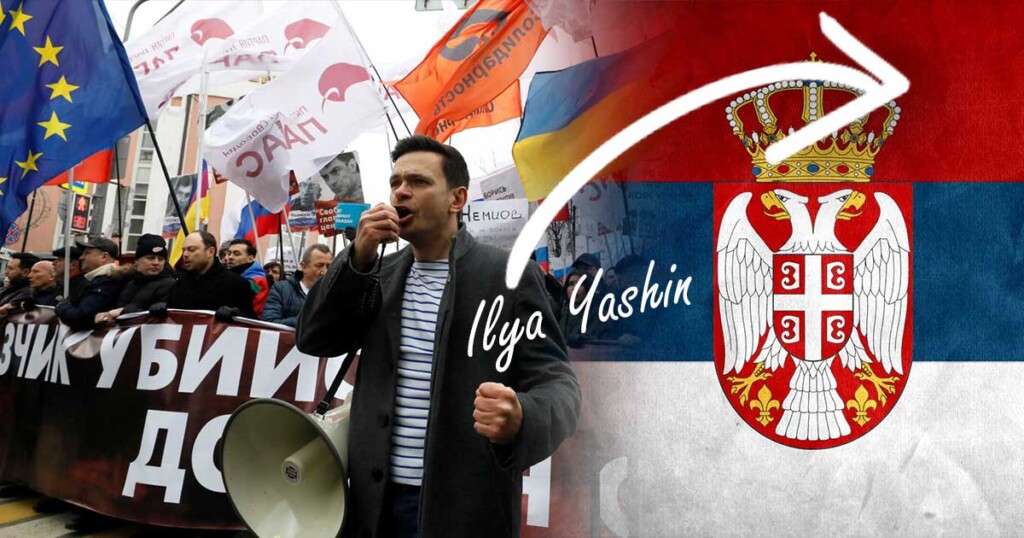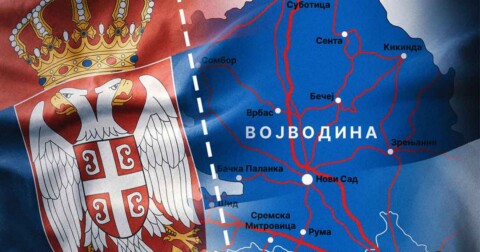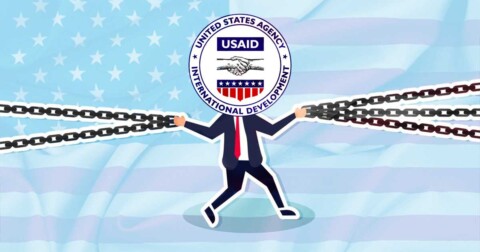Important political gathering of Russian emigrants, held on August 1 in Belgrade’s MTS Hall, did not attract much attention from Serbian-language media. Based on available information, this event was covered in detail, apparently, only by the Serbian-language editorial teams of BBC and Radio Free Europe, while their articles were also republished by Danas and Blic.
POLITICAL PRISONERS OR WESTERN SPIES?
At the political gathering that brought together several hundred Russians who left their country after the start of the Special Military Operation and settled in Serbia, the main star of the evening was one of the most well-known younger-generation Russian opposition politicians, Ilya Yashin. This was hardly surprising given that the reason for organizing the event was the “anniversary of the great political prisoner exchange” between Russia, Belarus, and certain Western countries, mediated by Turkey. In this exchange, the Collective West traded eight arrested and, in some cases, already legally convicted Russian intelligence officers (GRU, FSB, SVR) and hackers for sixteen individuals who were serving sentences in Russian and Belarusian prisons (1 person in Belarus) for some of the most serious crimes against the state, including treason and espionage. This was the largest such exchange since the end of the Cold War.
Among the 16 Russian “political” convicts—who were in reality Western intelligence operatives and Russian citizens working against their own state—whom the Collective West demanded and obtained in this now-famous prisoner swap, was Ilya Yashin. Yashin had been serving an 8.5-year sentence in Russia for deliberately spreading false information about alleged crimes committed by Russian soldiers in Bucha, Ukraine. Alongside Yashin, another speaker at the large political gathering of Russian emigrants in Belgrade was Ksenia Fadayeva, who had also been exchanged on August 1, 2024. Before that, she had been convicted in Russia, as part of Alexei Navalny’s Siberian team, to 9.5 years in prison for extremist association and activities.
A LEADER THE WEST SERIOUSLY RELIES ON
The very fact that Ilya Yashin was among the small number of prisoners the Collective West requested from Russia last August shows that on August 1, Belgrade hosted one of the most promising young Russian political leaders from the otherwise small anti-Putin camp—someone the West is counting on for the future. Ilya Yashin, along with Vladimir Kara-Murza and Andrei Pivovarov, who were also exchanged on August 1, 2024, belongs to the most prominent and active associates of the now-deceased leaders of the since-banned PARNAS party —Boris Nemtsov (assassinated in 2015) and Mikhail Kasyanov (assassinated in 2023).
Considering that they were close political associates of two of the highest state officials from Boris Yeltsin’s second term—known as the Semibankirschina (rule of the seven financial oligarchs, including Berezovsky, Khodorkovsky, Fridman, Gusinsky, among others—here), which is considered the worst period of modern Russia—it is not hard to grasp Yashin’s political views and the foreign policy position he advocates for Russia. This Russian liberal began his political career as a youth activist of “Yabloko.” In this context, it is no coincidence that Yashin was among the few Russian politicians who opposed Crimea’s reunification with the mainland and, after February 24, 2022, became one of the most active Russian anti-war activists. Likewise, it is no coincidence that his close political associate, like-minded ally, and friend Vladimir Kara-Murza considers Slobodan Milošević a “dictator” and October 5th a “democratic revolution”.
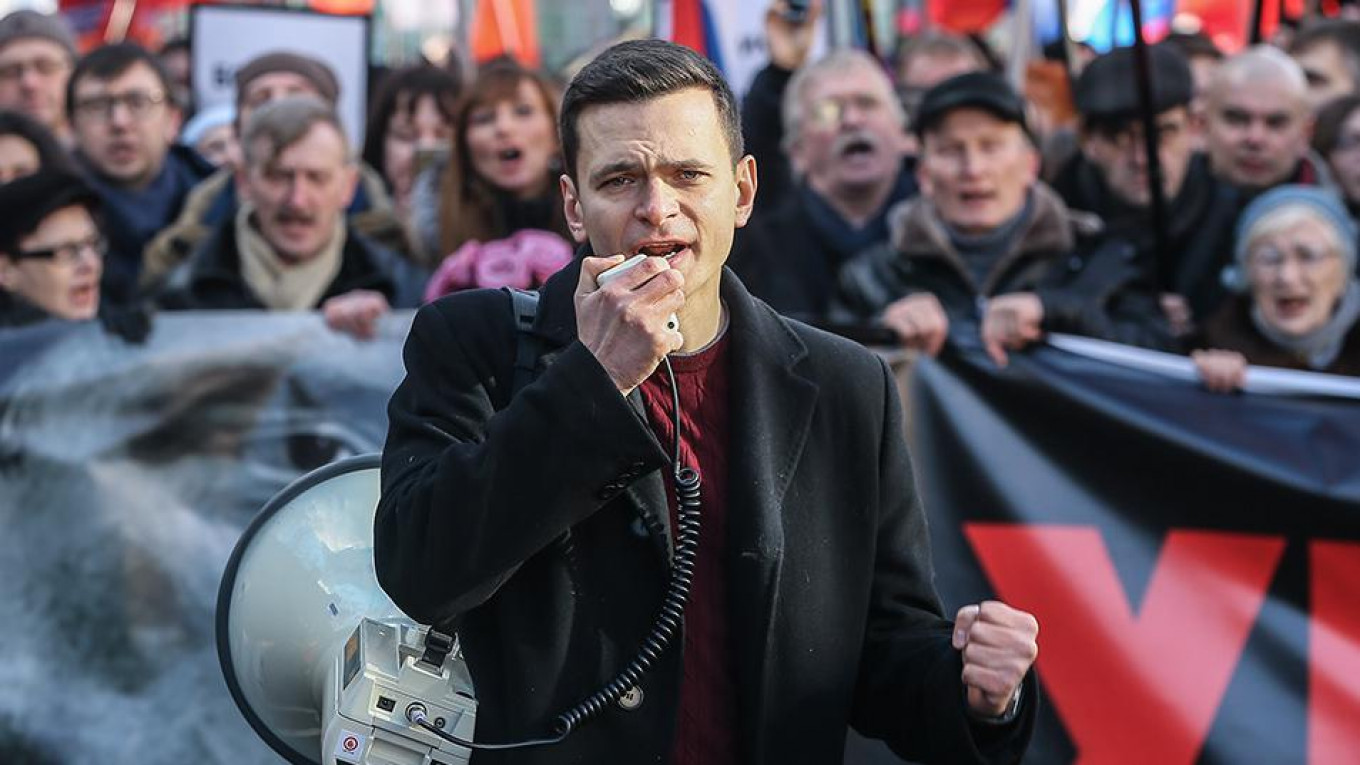
CONVINCING SERBS THAT PUTIN IS A CRIMINAL
At the beginning of August, the Serbian public could see for itself the political views held by Yashin and other political activists among the Russian emigrants gathered in Belgrade by the “Free Russia” Foundation, which has been declared extremist in Russia (the chairman of this NGO’s board of directors is none other than David Kramer, former U.S. Assistant Secretary of State for Democracy, Human Rights, and Labor, and former director of Freedom House, while the vice-chairman is Vladimir Kara-Murza).
In an interview given on this occasion to N1 television, Yashin used the opportunity to convince Serbs that “Vladimir Putin is a war criminal,” that “the aggression against Ukraine is barbaric and illegal,” that the war “must stop” because it “contradicts Russia’s national interests,” that “a true traitor is now leading Russia,” and that he, Yashin, is “an unconditional patriot of his country.” After these statements, made on a media outlet owned by United Group, it becomes perfectly clear why the intelligence services of the Collective West pushed for the release and exchange of this young anti-Putin “hawk,” why Germany granted him asylum, and why Paris awarded him honorary citizenship. It also explains why the prison uniform in which he landed in Germany from Russia has become a museum exhibit in France.
DO NOT UNDERESTIMATE THE IMPORTANCE OF THE RUSSIAN COMMUNITY
The organization of a large gathering of anti-Putin political émigrés in Belgrade, held on an anniversary that is symbolically very significant for this group, is certainly related to the fact that between February 2022 and the end of 2024, according to data collected by the Belgrade Centre for Security Policy, as many as 73,197 Russian citizens submitted applications for temporary residence in Serbia. The size—and therefore the importance—of the Russian community in Serbia for anti-Putin political organizations and activists in exile was also emphasized by Ilya Yashin himself in an interview given before the event to the Russian émigré YouTube channel Novosti Serbii. In Yashin’s words, there are many Russians in Serbia “who share my views and my values.” In this context, Yashin particularly pointed out that in the 2024 elections, Putin received only 10% of the vote at the polling station in the embassy in Belgrade. In the same interview, Yashin did acknowledge that he is well aware of the close ties between official Belgrade and the Kremlin, that Russian intelligence services allegedly operate in Serbia, and that coming to the Serbian capital entails certain risks and complications for him—but these risks are, in his view, certainly smaller than many others he has faced in his life.
COUNTER-PROPAGANDA AGAINST THE RUSSIAN HOUSE
That political gatherings of the Russian émigré community—such as the one in Belgrade on August 1, organized, by Yashin’s own admission, in the style of American pre-election conventions — and visits to Serbia by Russian anti-Putin activists are intended not only for Russians in exile but also for the Serbian public, can be seen from what was said at the MTS Hall on that occasion.
In a detailed report published by the Sotaprojekt portal, which is funded by Leonid Nevzlin, a former close associate of Mikhail Khodorkovsky and Russian businessman, it was recorded that Yashin told the leading political activist among Russians in Serbia, Petr Nikitin, that “it is necessary to talk to Serbs about what is really happening in Ukraine and what the Putin regime truly represents.” Yashin emphasized that he is well aware that “pro-Kremlin propaganda is active in Serbia,” but also that “we must be counter-propaganda to what the Russian House is doing here, to what all those organizations financed by Gazprom, the Kremlin, and Russian intelligence services are doing”.
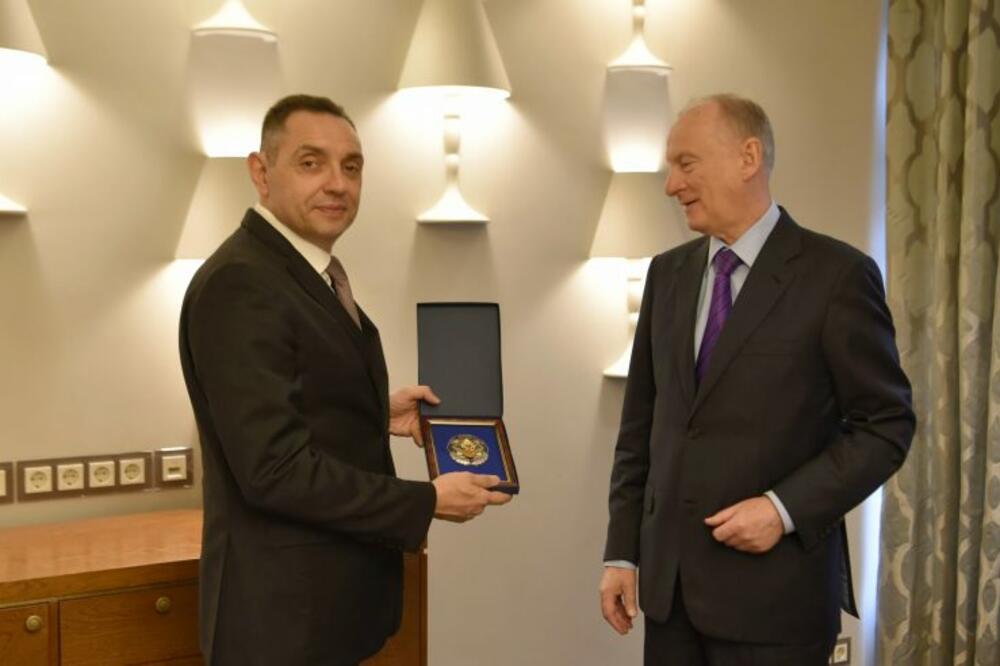
WITH VULIN REMOVED, AGREEMENTS ALSO REMOVED
The very dialogue held on stage at the MTS Hall on August 1 between Ilya Yashin and Petr Nikitin raises the most important question: what has changed in the official policy of Serbia since last year that has now made it possible to organize, in the center of Belgrade and in a hall whose director is known for his ties to people from the state leadership, a large gathering of the most radical opponents of the Russian state from among the Russian émigré community?
It is worth recalling that in the previous year, anti-Putin political activists among Russians in Serbia not only regularly complained to pro-Western media that they “live in daily fear of being deported from Serbia”, but some were also banned from entering Serbia, and Nikitin’s “Russian Democratic Society” was deleted from the Business Registers Agency (APR).
Has the removal of Aleksandar Vulin from the government and from the security sector also ended the agreements on joint Serbian–Russian cooperation in the security sphere, which also included intelligence cooperation between the two states in suppressing “color revolutions”—agreements that, as far back as 2021, were reached by then-Secretary of the Security Council of the Russian Federation Nikolai Patrushev and then-Minister of Internal Affairs Aleksandar Vulin? In any case, for Serbia’s national interests it would be disastrous if Serbia were to become a safe haven for the extreme Russian political émigré community, thus turning into a kind of staging ground through which the West would politically destabilize Russia.
